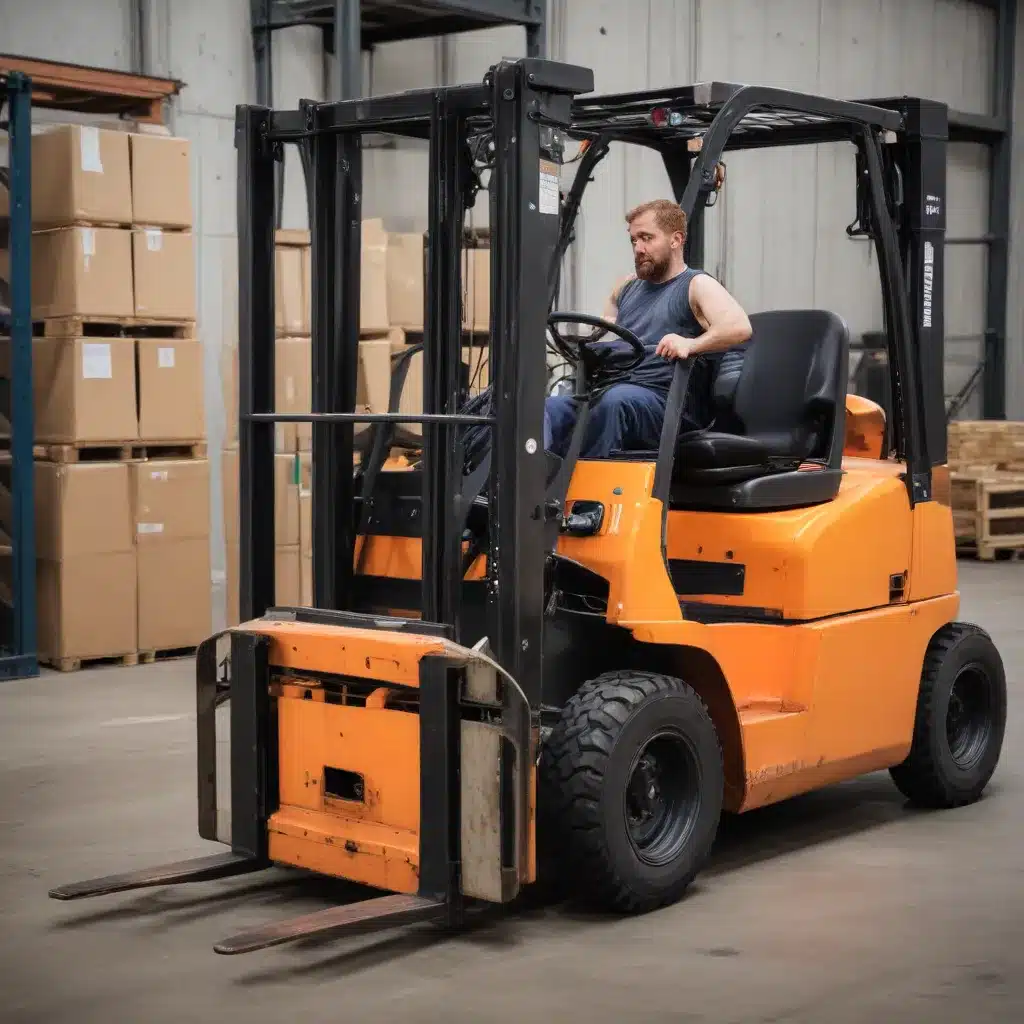
Navigating the High-Pressure World of Forklift Operations
As a seasoned industry expert in forklifts, warehousing, and logistics, I’ve witnessed firsthand the immense pressure and stress that forklift operators face on a daily basis. From navigating tight spaces and maneuvering heavy loads to meeting tight deadlines and dealing with demanding supervisors, the forklift operator’s job is no easy feat.
However, the key to success lies not only in technical skills but also in the ability to maintain composure and focus, even in the most challenging situations. In this comprehensive guide, I’ll share practical techniques and strategies that forklift operators can utilize to effectively manage stress and optimize their performance on the job.
Understanding the Sources of Forklift Operator Stress
Before we dive into the solutions, it’s important to recognize the primary factors that contribute to stress in the forklift operator’s role. These include:
1. Time Pressure and Tight Deadlines
Forklift operators are often under immense pressure to move materials and complete tasks quickly, whether it’s to meet production schedules, fulfill customer orders, or keep the warehouse operations running smoothly. This constant need for speed can be mentally and physically taxing.
2. Navigating Hazardous Environments
Forklift operations inherently involve navigating through tight spaces, maneuvering heavy loads, and being mindful of potential hazards like pedestrians, racking systems, and other equipment. The risk of accidents and the need for heightened awareness can be a significant source of stress.
3. Dealing with Demanding Supervisors and Coworkers
Unsupportive or overbearing supervisors, as well as difficult coworkers, can create a hostile work environment that adds to the stress and pressure faced by forklift operators. Navigating these interpersonal dynamics can be draining.
4. Concerns About Job Security and Performance
With high expectations and the potential for mistakes or accidents, forklift operators may constantly worry about their job security and performance evaluations, further contributing to their stress levels.
Techniques for Maintaining Composure and Focus
Now that we’ve identified the primary sources of stress for forklift operators, let’s explore the practical techniques and strategies that can help them maintain composure and focus on the job:
1. Develop a Mindfulness Practice
Incorporating mindfulness exercises into your daily routine can be a game-changer in managing stress. Take regular breaks throughout your shift to practice deep breathing, meditation, or simple grounding exercises. This can help you center your thoughts, reduce anxiety, and approach each task with a calm and focused mindset.
2. Prioritize Physical Wellness
Maintaining good physical health is crucial for managing the demands of the forklift operator role. Ensure that you get enough sleep, eat a balanced diet, and incorporate physical activity into your routine, even if it’s just a brief stretch or walk during your breaks. Taking care of your body can significantly improve your ability to handle stress.
3. Communicate Effectively with Supervisors and Coworkers
Open and honest communication is essential for navigating workplace relationships and addressing any issues that may be contributing to your stress. Approach your supervisors or coworkers with a solutions-oriented mindset, and work collaboratively to find ways to improve the work environment and support one another.
4. Utilize Time Management Strategies
Develop a systematic approach to your tasks and responsibilities, prioritizing the most critical items and finding ways to optimize your workflow. This may involve creating checklists, setting realistic deadlines, and delegating or outsourcing tasks when possible. Effective time management can help you feel more in control and less overwhelmed.
5. Cultivate a Positive Mindset
Your inner dialogue and perspective can have a significant impact on your stress levels. Counteract negative self-talk or catastrophizing by reframing your thoughts to focus on what you can control, celebrate your accomplishments, and maintain a solutions-oriented outlook. Positive self-talk and a growth mindset can boost your resilience and enhance your performance.
6. Seek Support and Utilize Resources
Don’t hesitate to reach out for help or access the resources available to you. This could include speaking with a trusted colleague, connecting with a mental health professional, or exploring any wellness programs or Employee Assistance Programs (EAP) offered by your employer. Sharing your experiences and seeking support can provide valuable coping strategies and alleviate the burden of stress.
Maintaining a Balanced Approach
Ultimately, effectively managing stress as a forklift operator requires a multifaceted approach that addresses both the physical and mental aspects of the job. By incorporating these techniques into your daily routine and cultivating a holistic well-being, you can not only improve your performance but also enhance your overall job satisfaction and quality of life.
Remember, you are not alone in this journey. Reach out to your peers, supervisors, and industry resources for support and guidance. Together, we can foster a workplace culture that prioritizes the well-being of forklift operators and empowers them to excel in their roles.
For additional insights and resources on forklift safety, maintenance, and industry trends, be sure to visit Forklift Reviews. Our team of experts is dedicated to providing practical, up-to-date information to help forklift operators and warehouse professionals navigate the ever-evolving landscape of material handling and logistics.
Conclusion
The role of a forklift operator is undoubtedly demanding, but with the right strategies and mindset, you can thrive in this high-pressure environment. By prioritizing your physical and mental health, fostering open communication, and cultivating a positive outlook, you can maintain composure, focus, and excel in your forklift operations. Remember, your well-being is paramount, and taking care of yourself will not only benefit you but also contribute to the success of your workplace and the industry as a whole.

